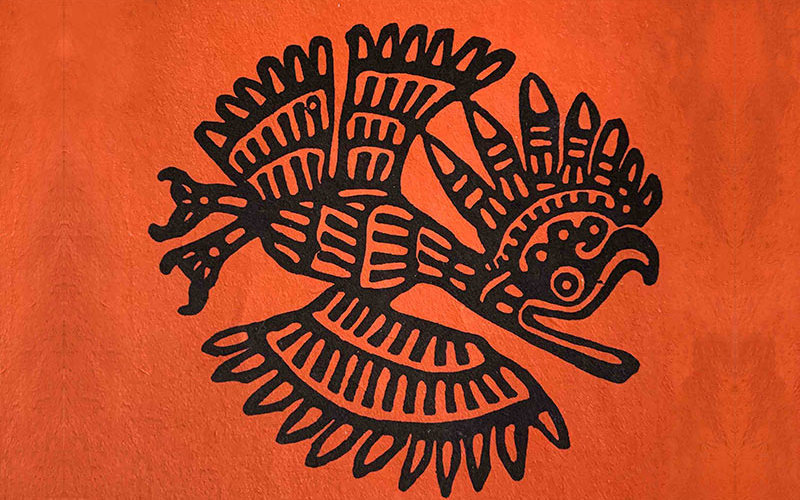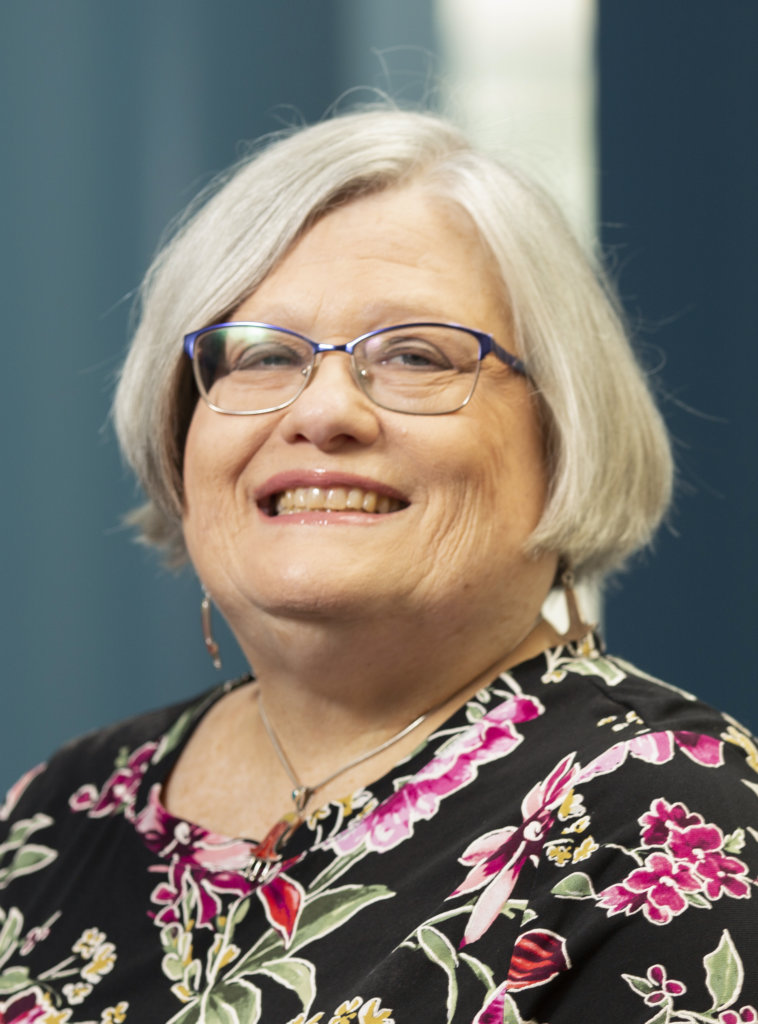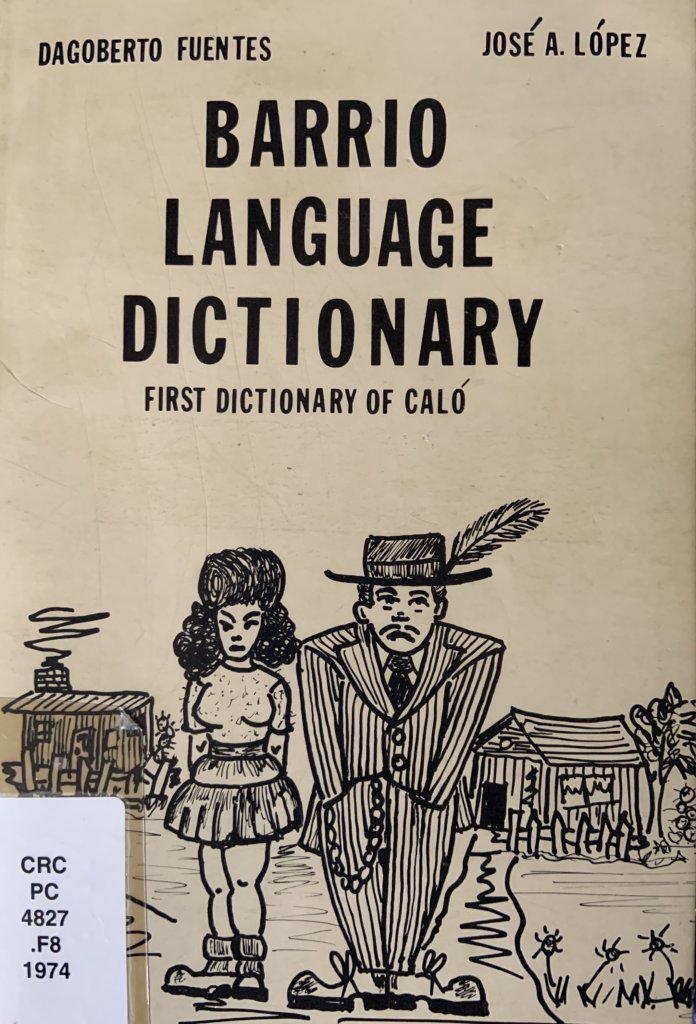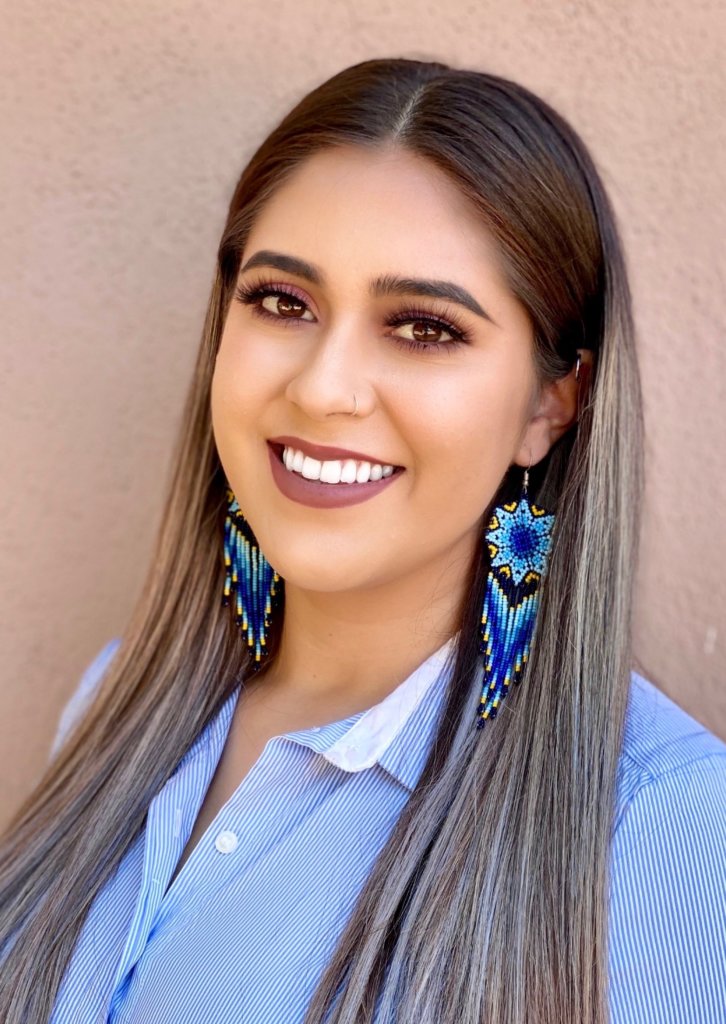
Daisy Gomez-Fuentes listened in awe to an audio-visual recording of Chicano activist Rudy Acuña speaking to a group of Cal State Fullerton students in May 1974. The lecture gave her insights into the Chicano Movement of the 1960s and ’70s.
“He spoke about the cultural conflicts that Chicanx students faced in academia,” said Gomez-Fuentes, a Chicana and Chicano studies major and daughter of Mexican immigrants.

When Barbara Miller became the Chicano Resource Center librarian over 20 years ago, she also was intrigued with Pollak Library’s collection of audio-visual recordings with labels of the names of Acuña, Angela Davis, César Chávez and Bert Corona — and other prominent activists of the civil rights and Chicano movements.
In 1972, the then-named Mexico and Southwest Collection — later known as the Chicano Resource Center, and today, the Latinx Community Resource Center — was established to develop the collection to support the Department of Chicana and Chicano Studies. The collection, a project of the library’s Chicano staff, highlighted the history, culture and education of Chicanos, Miller shared.
Among highlights of the collection are more than 500 audio-visual recordings — rallies, speeches, lectures, oral histories and music — documenting the Chicano community and events of historical and cultural significance to the university, Orange County and the region.
“It’s a true hidden collection,” Miller said. “The collection represents a grassroot perspective of Orange County and Southern California history by preserving the stories of individuals and organizations left out of California’s mainstream narrative.”
Gems of the Collection
Textbooks like Acuña’s “Cultures in Conflict: Problems of the Mexican Americans,” newspapers such as “La Causa” and “El Quetzal,” and oral histories, many in Spanish, by ordinary Chicano citizens, judges and teachers are some of the other treasures of the collection.

Print materials also include cookbooks, such as “Make Mine Menudo: Chicano Cook Book” and the “Barrio Language Dictionary,” a book of slang words used in Mexican American barrios co-authored by Dagoberto Fuentes, a past chair and professor emeritus of Chicana and Chicano studies.
The collection of materials, renamed the Chicanx Resource Center Collection, is part of the library’s University Archives and Special Collections. The goal is to make the collection more accessible to the public, including to academics and college students, and support efforts to expand learning and research for California’s ethnic studies mandate, Miller said.
Digitizing the Chicanx Past
Over the last two years, Miller and her team of student interns and volunteers, including Gomez-Fuentes, have been transcribing and translating materials to digitize the audio-visual recordings and oral histories. Due to the pandemic, organizing the physical collection, such as printed materials, has been put on hold, Miller said.
Miller, Gomez-Fuentes and other student assistants gave a presentation about the collection, titled, “Introducing the Chicanx Collection: Voices from the Past Illuminate the Present and Future,” during this spring’s library faculty talks.
“The collection tells the stories within the context of the struggles and successes of the fledgling ethnic studies at CSUF, of the growing and vital Chicanx/Latinx communities of Orange County, and of the Chicano Movement in Southern California for social justice, representation and equal rights,” Miller relayed.
“It shows a different side of Orange County than what was acknowledged — a Mexican American presence in a county that was very conservative.”

Gomez-Fuentes, a scholar in the McNair and Sally Casanova programs who is graduating this year and plans to pursue a doctorate and career in academia, added that the collection serves as a reminder of the sacrifices and activism of past Mexican Americans.
“While it has allowed my generation to have the civil and political rights we have today, it also informs us that racism is still present, and we must continue to fight against it.”
Gomez-Fuentes wanted to be a part of the project to learn more about Acuña and other Chicanx social and political activists. Her work also included spending hours transcribing the audio files of a picket line in May 1973 to save the university’s Chicano studies program, and when Corona, a civil rights and labor activist, spoke on campus on May 17, 1972.
Miller, the librarian liaison for the Latinx Community Resource Center and the Department of Chicana and Chicano Studies, has received some intramural grant funding for the project. To date, over 100 video and audio recordings have been digitized and are available on the library’s Internet Archive.
While there is a lot more work to do on the digitizing of the collection, eventually, it will be part of the California State University Digital Collections and Archives, Miller noted. The rollout of this CSU project has not been determined.
For more information about the collection, contact Miller at bmiller@fullerton.edu or 657-278-4460.